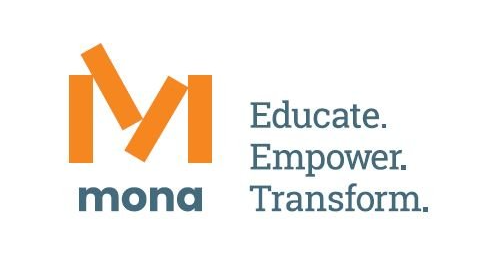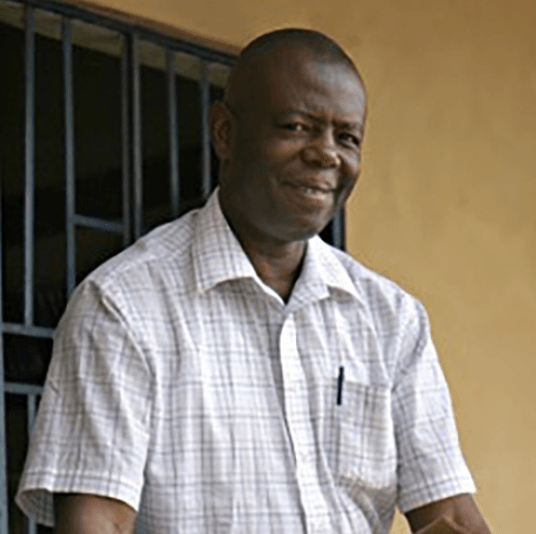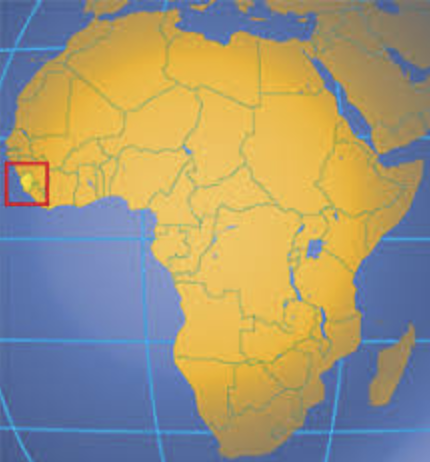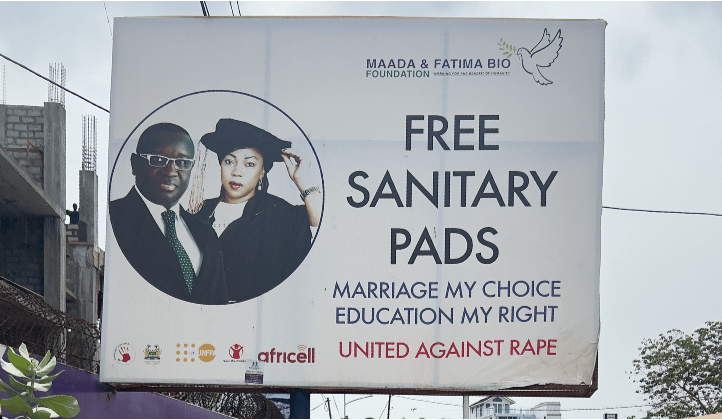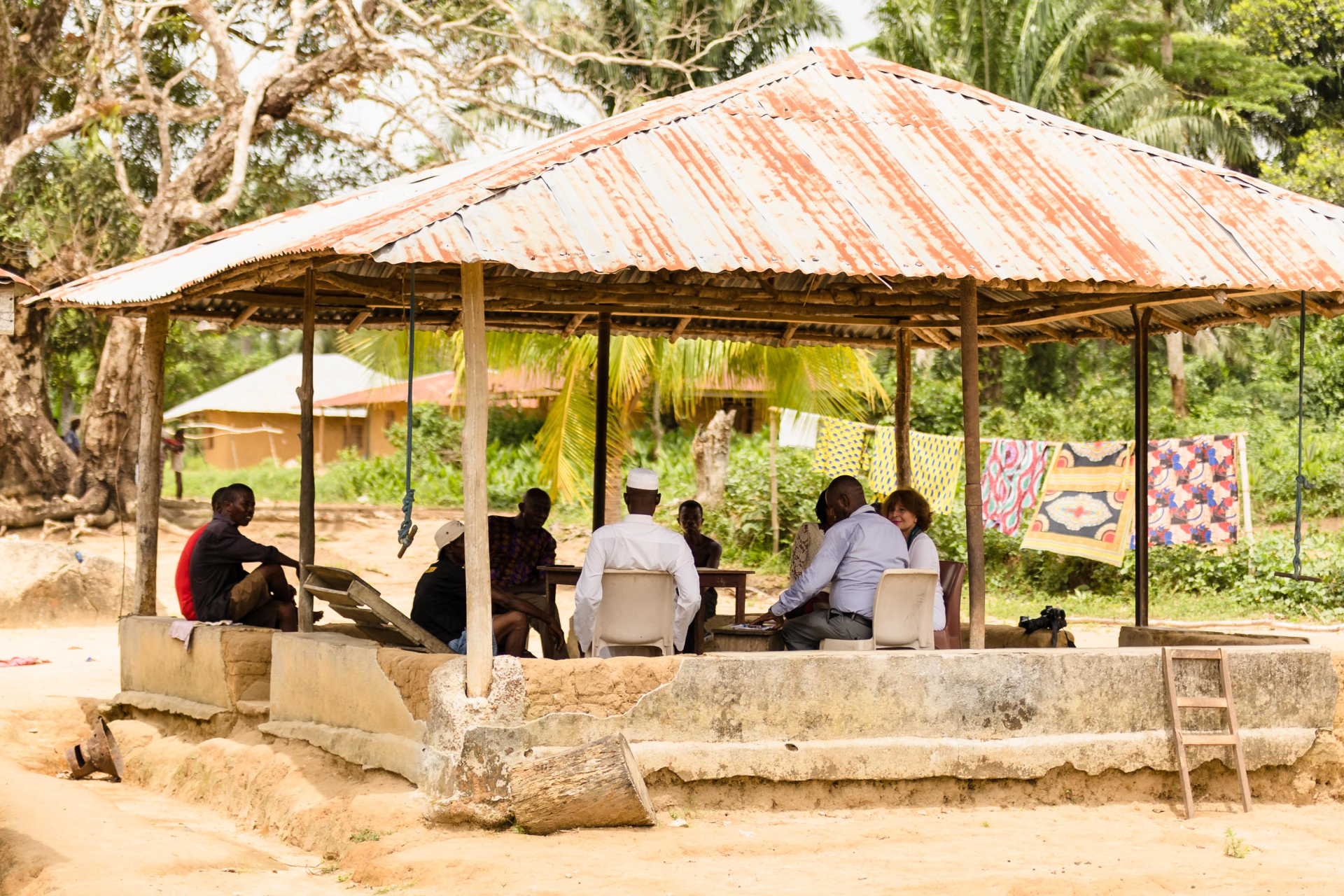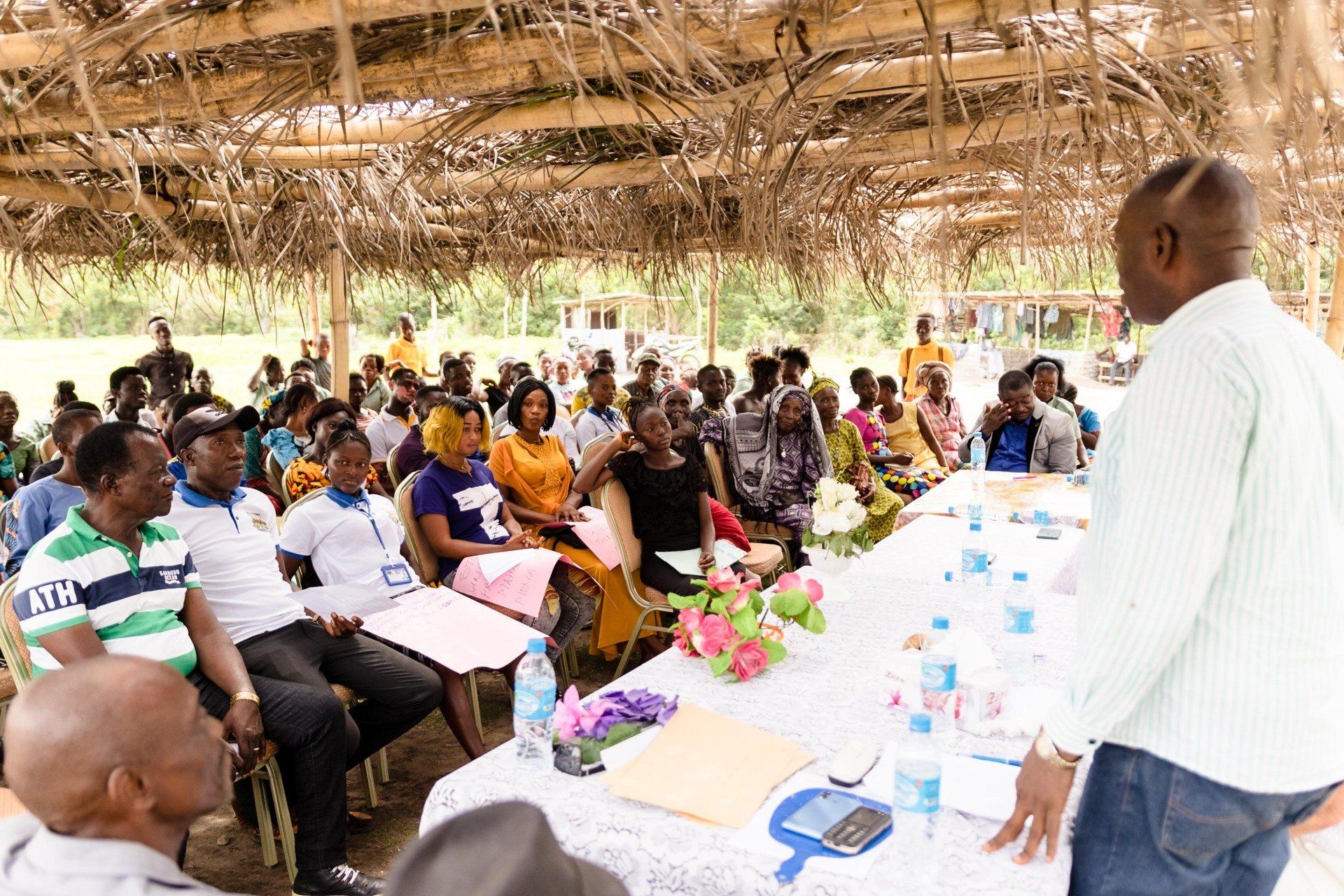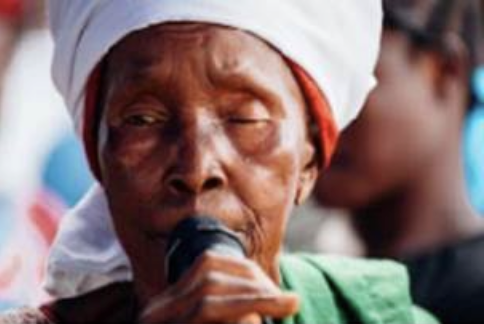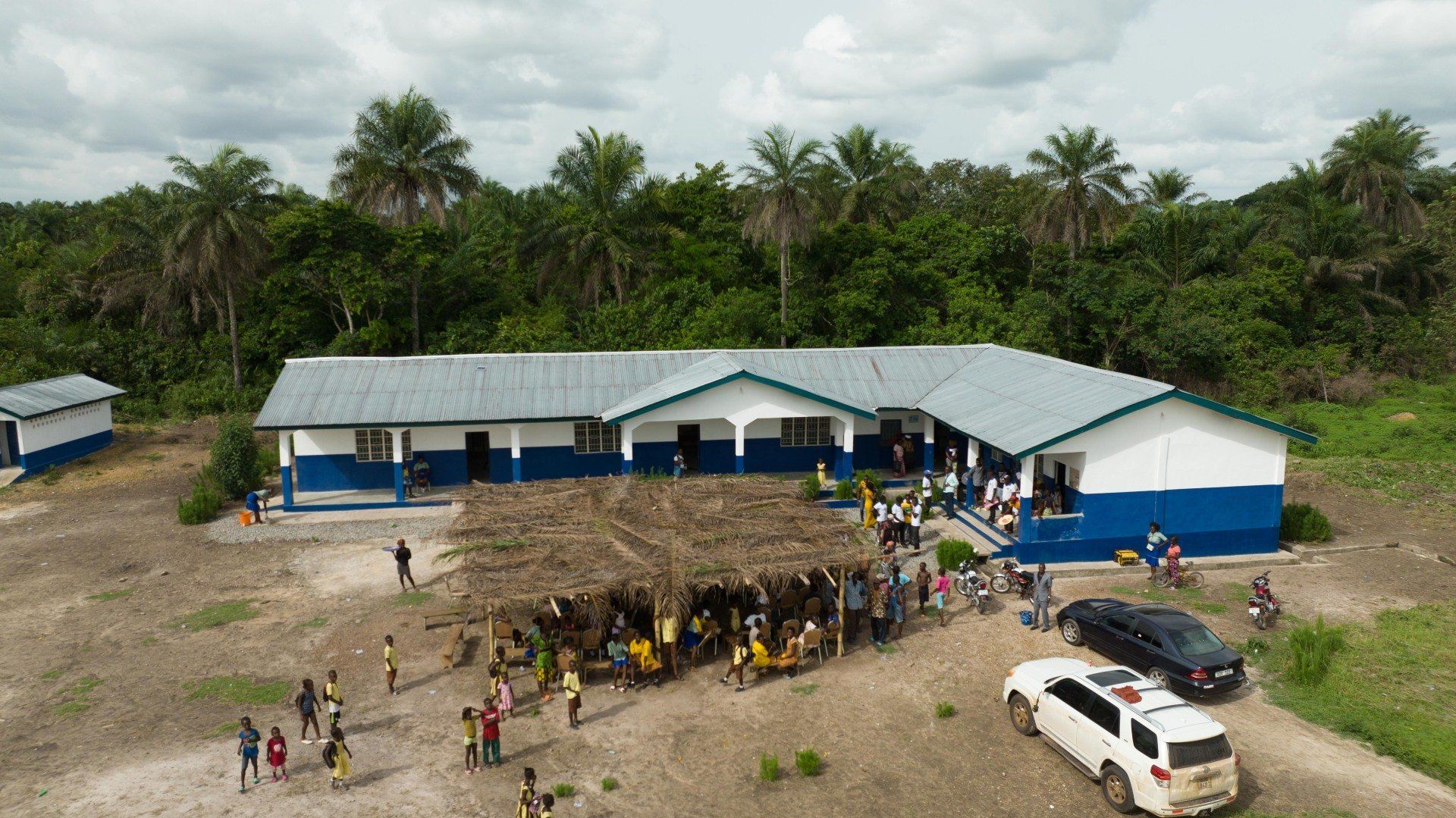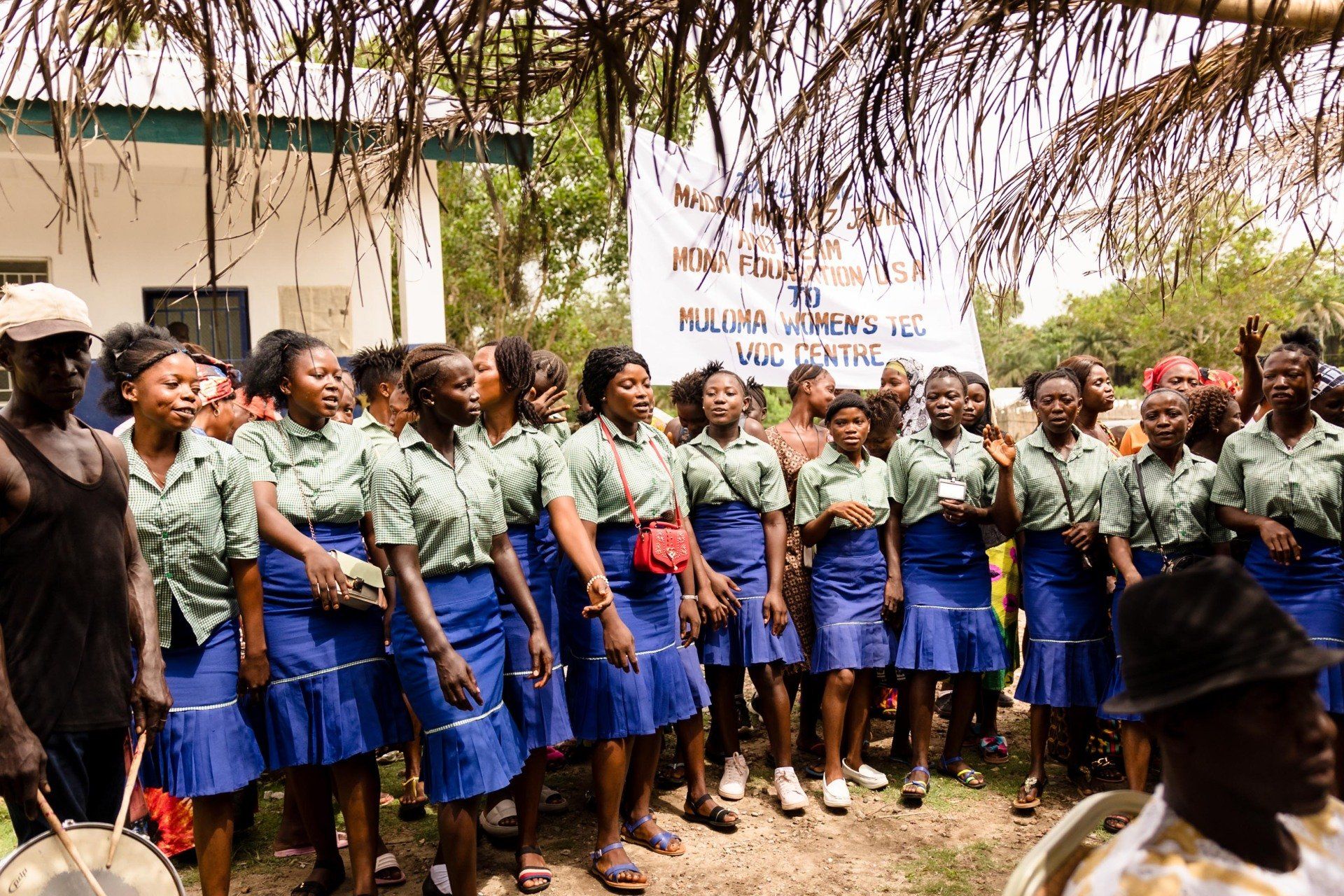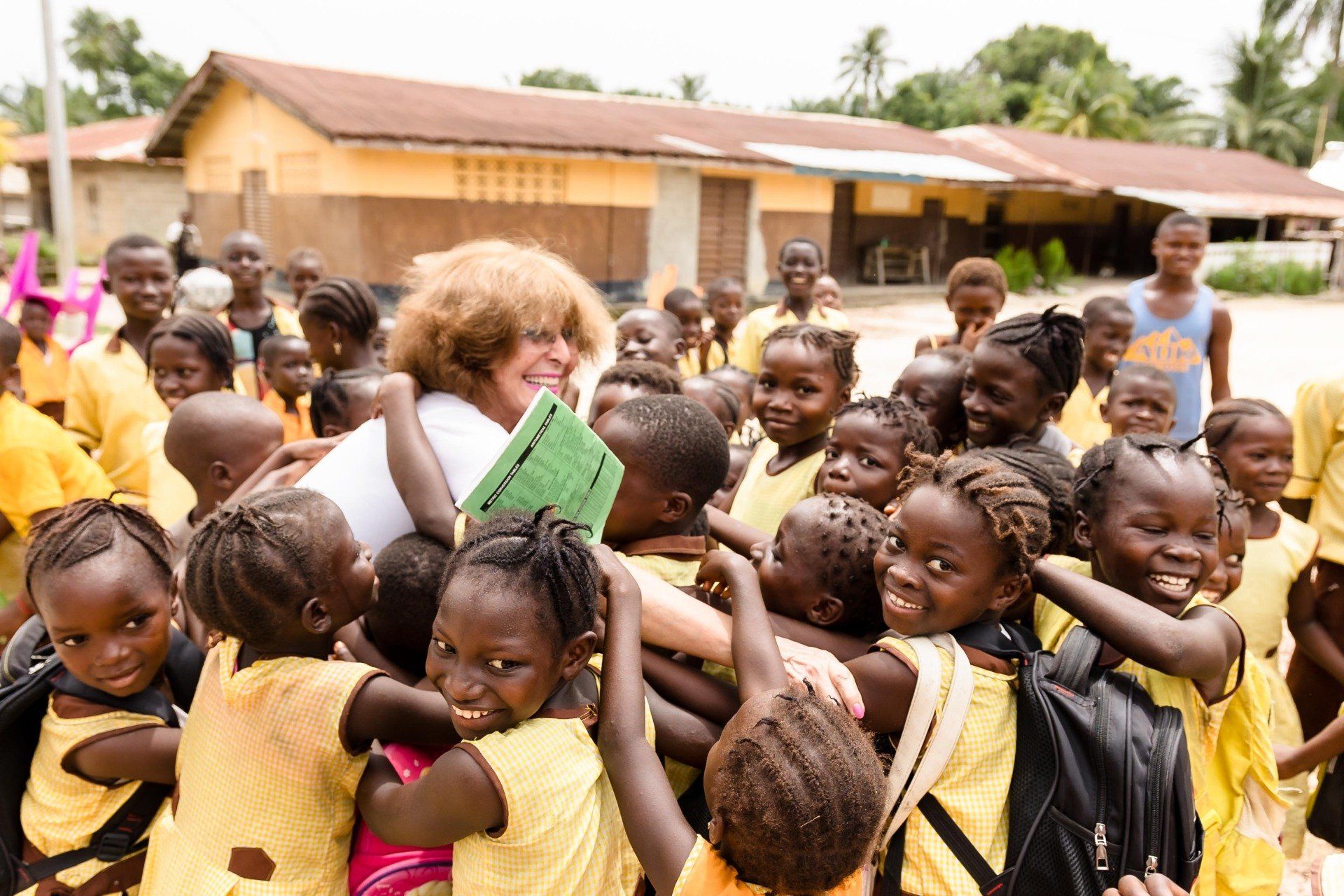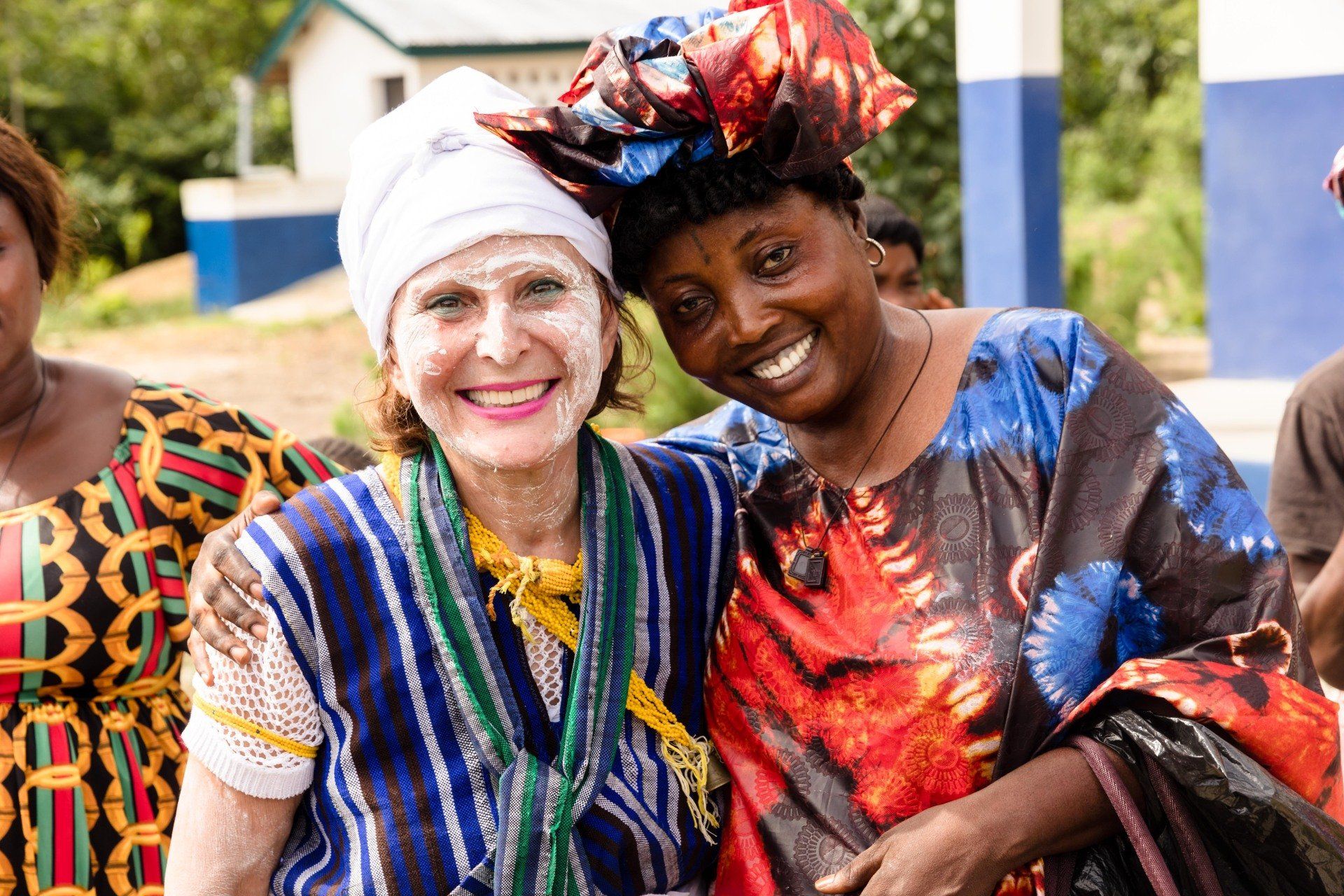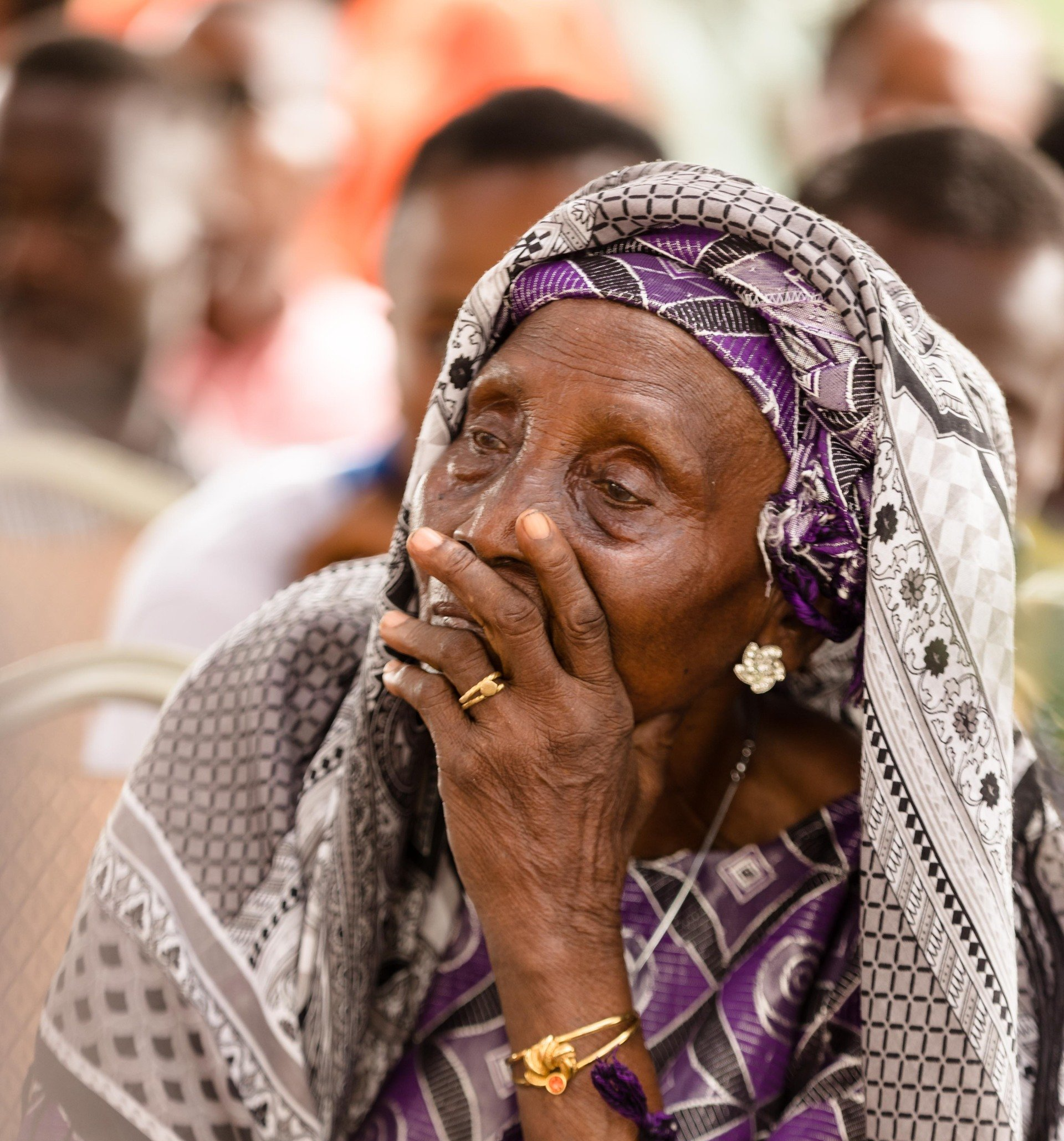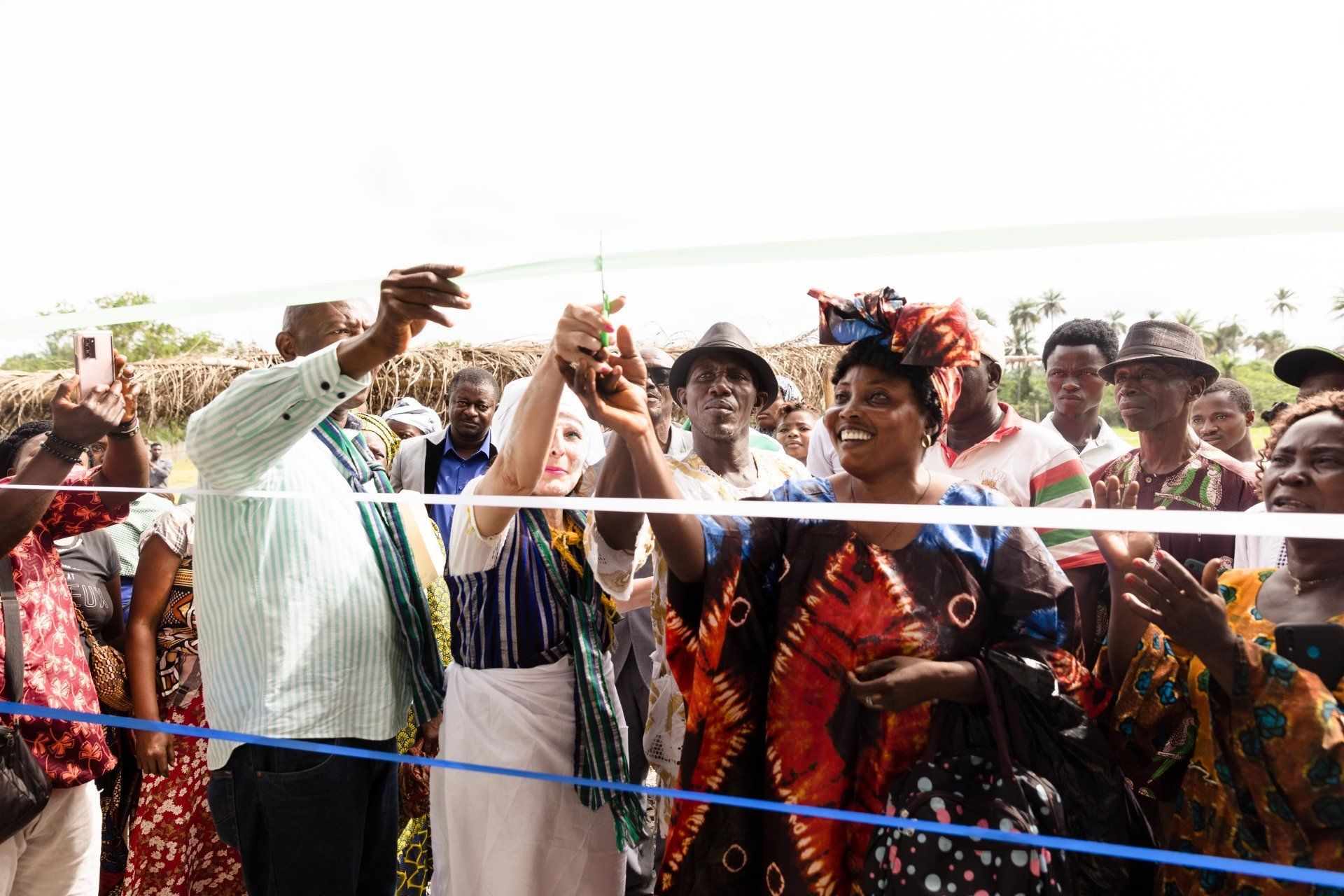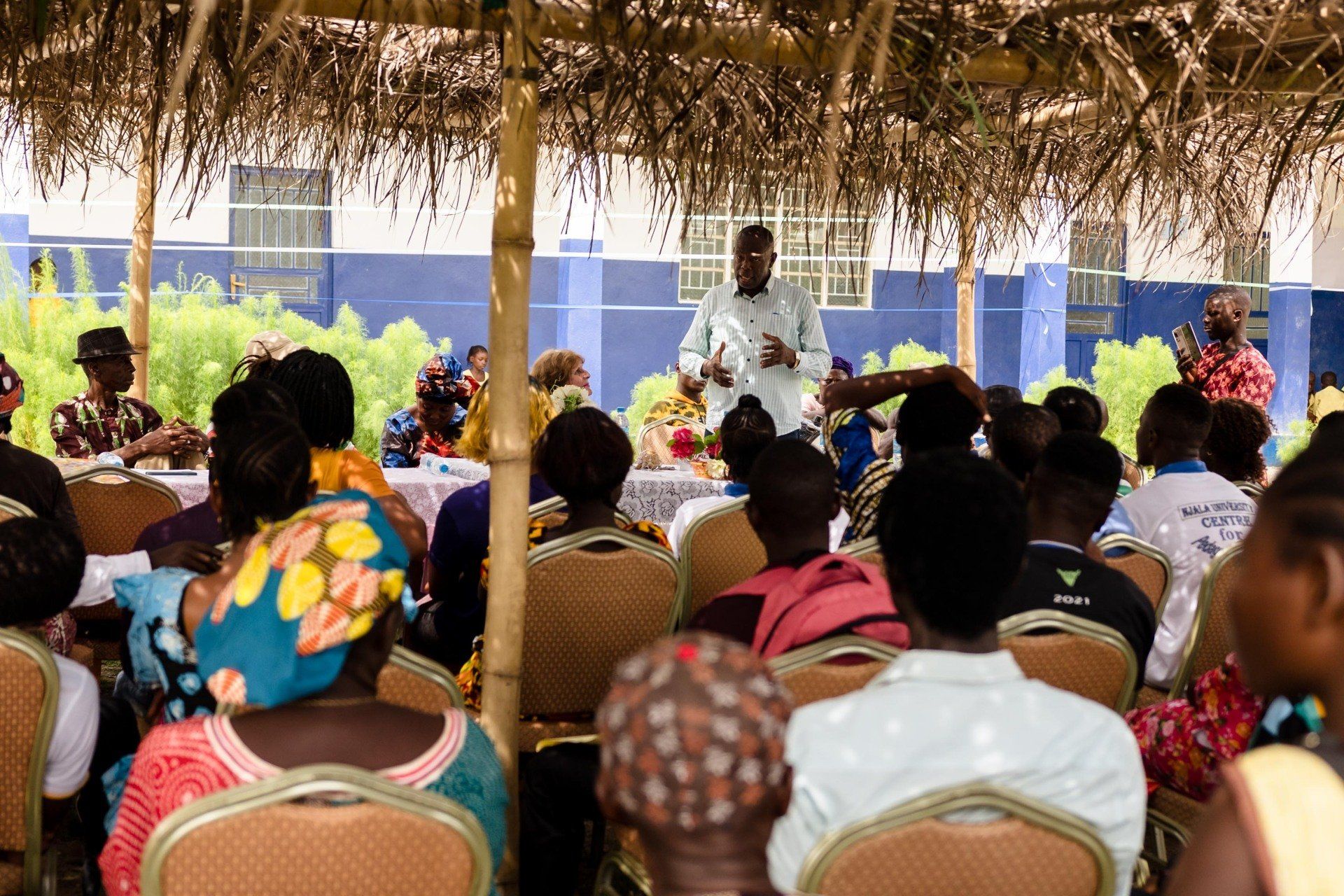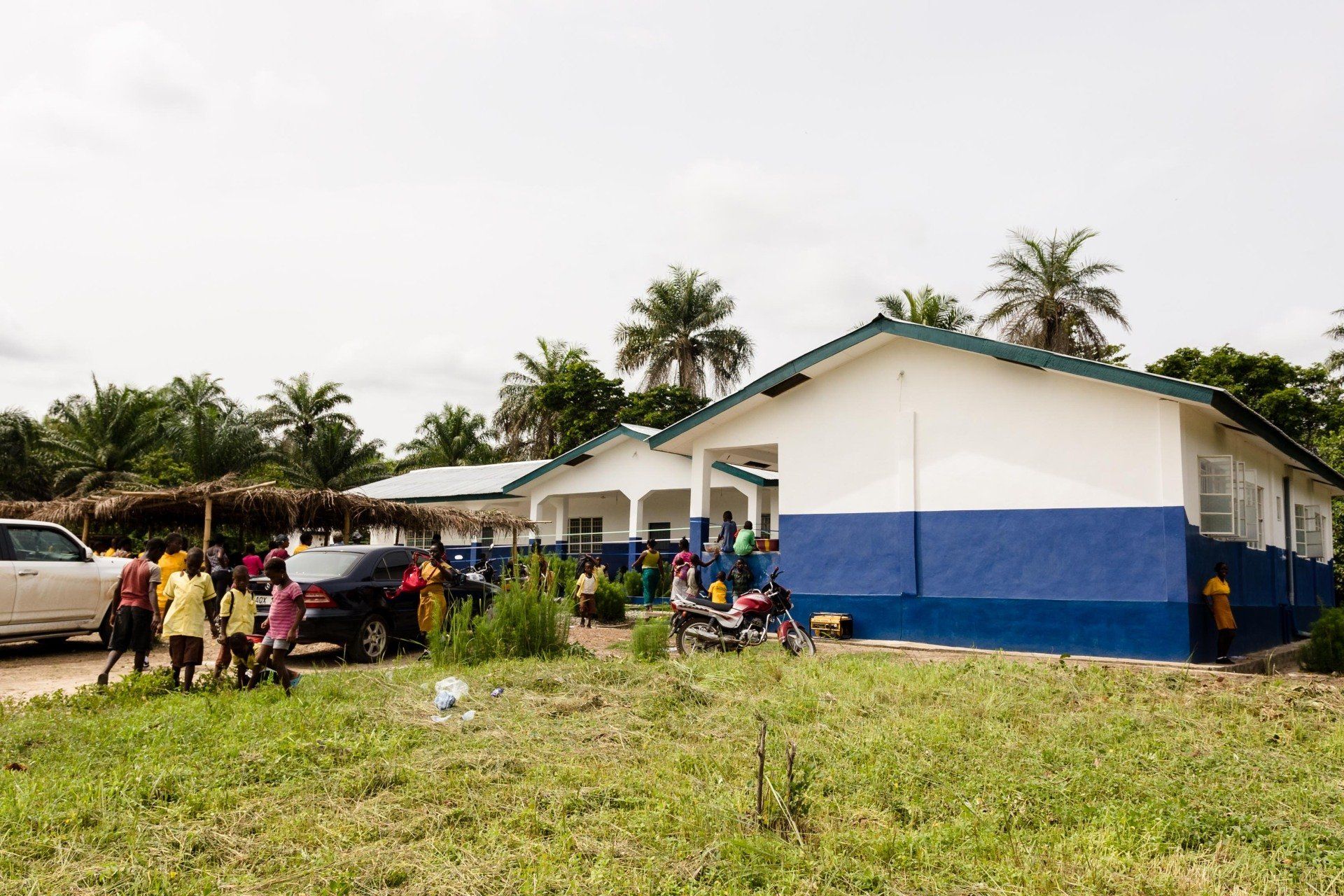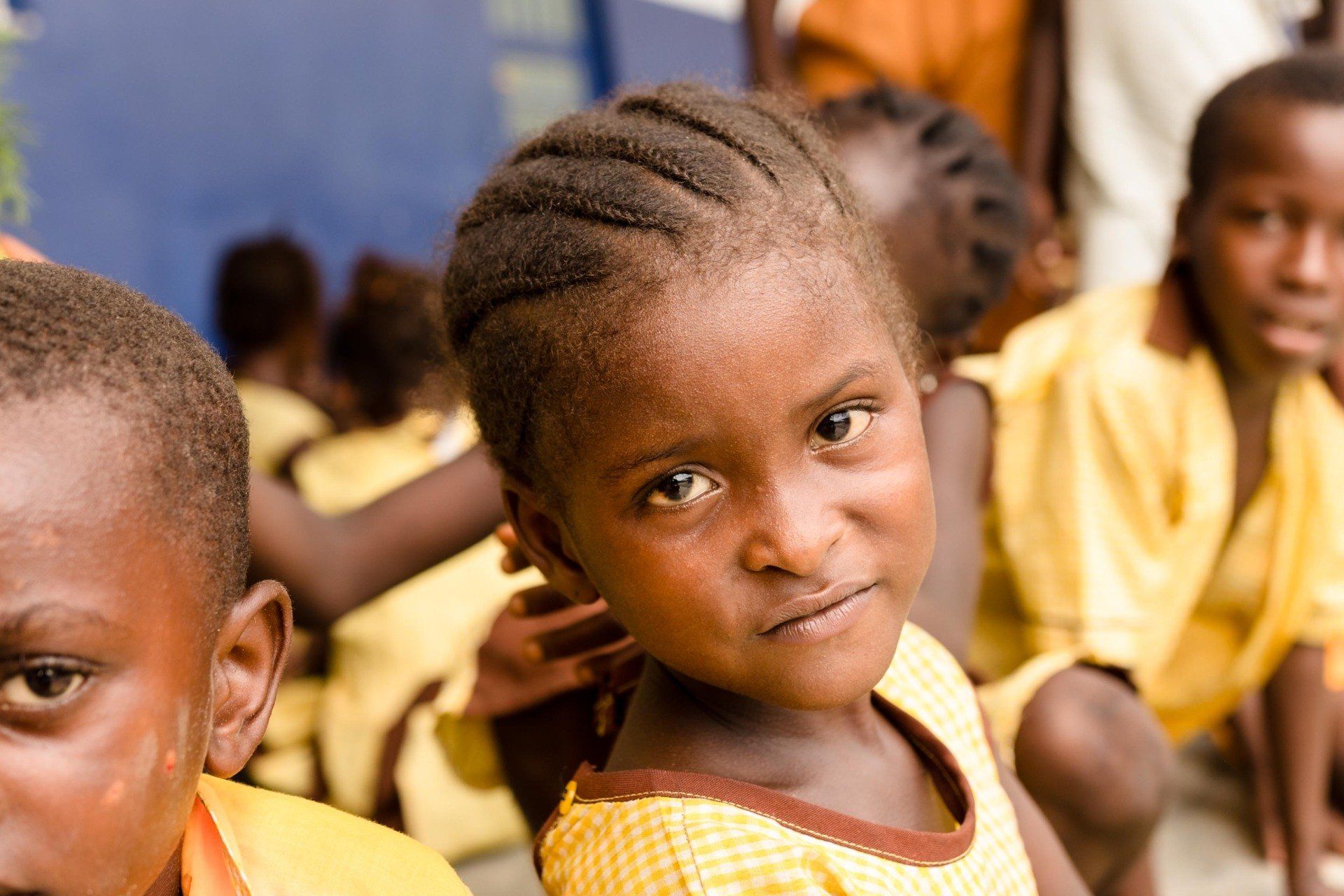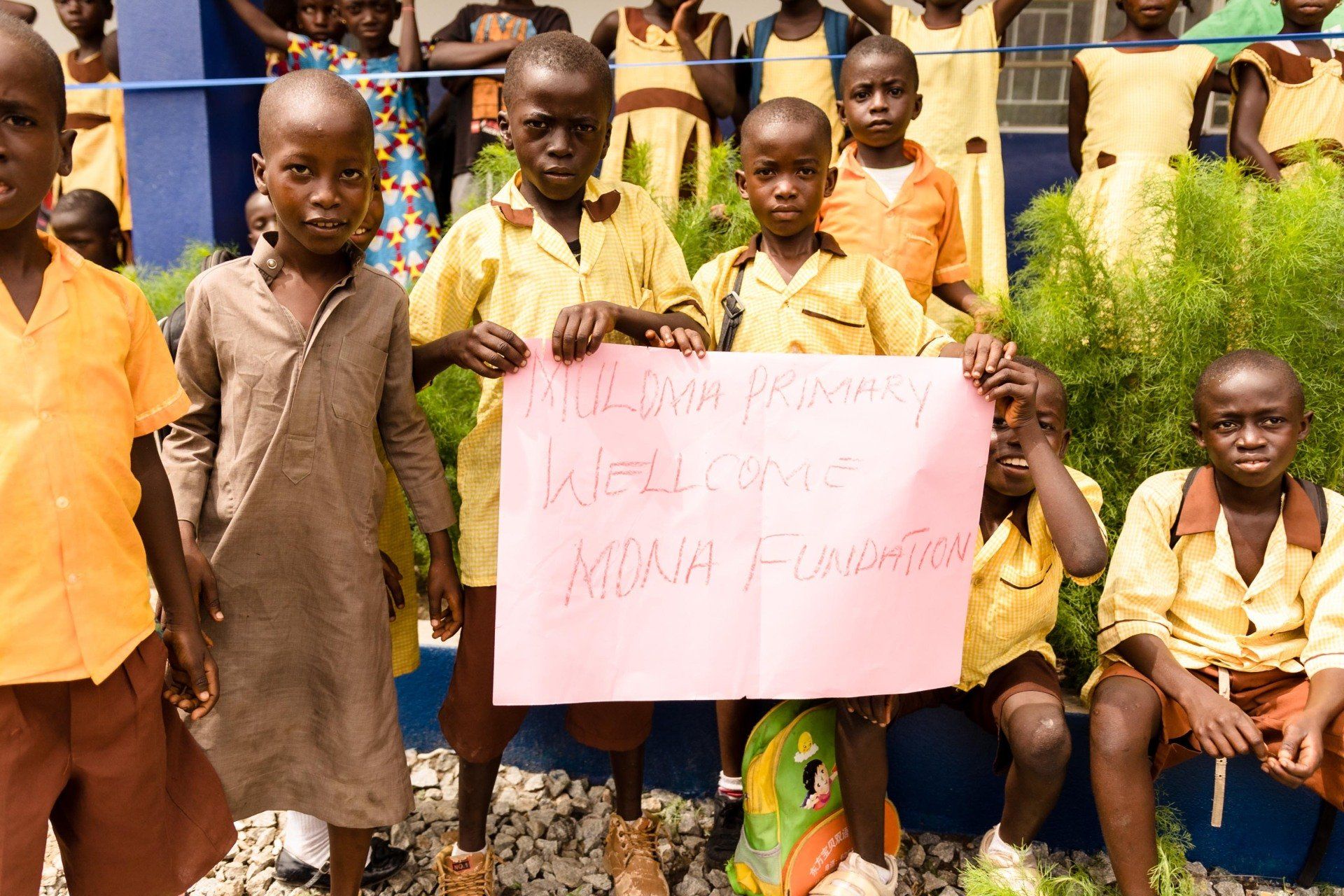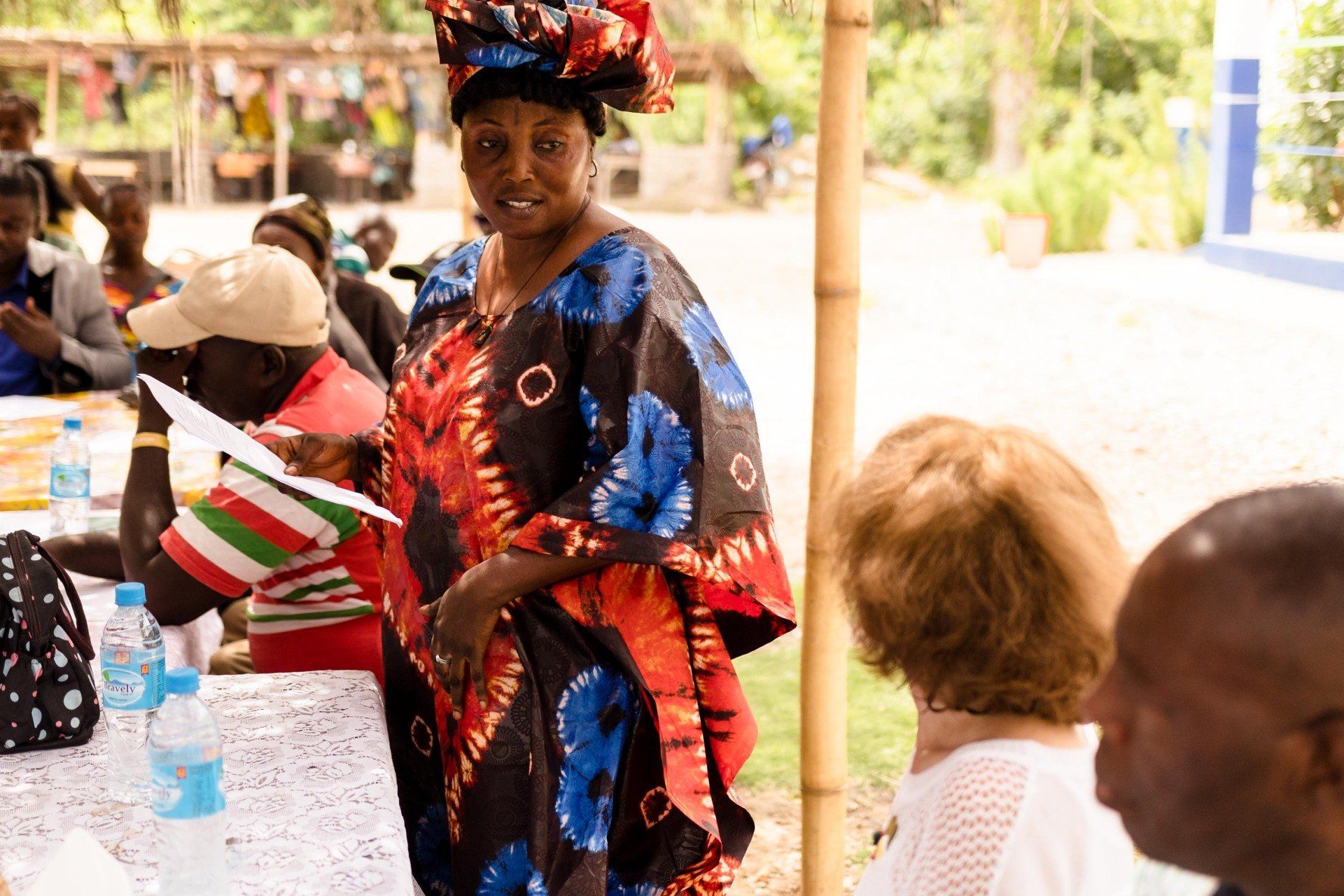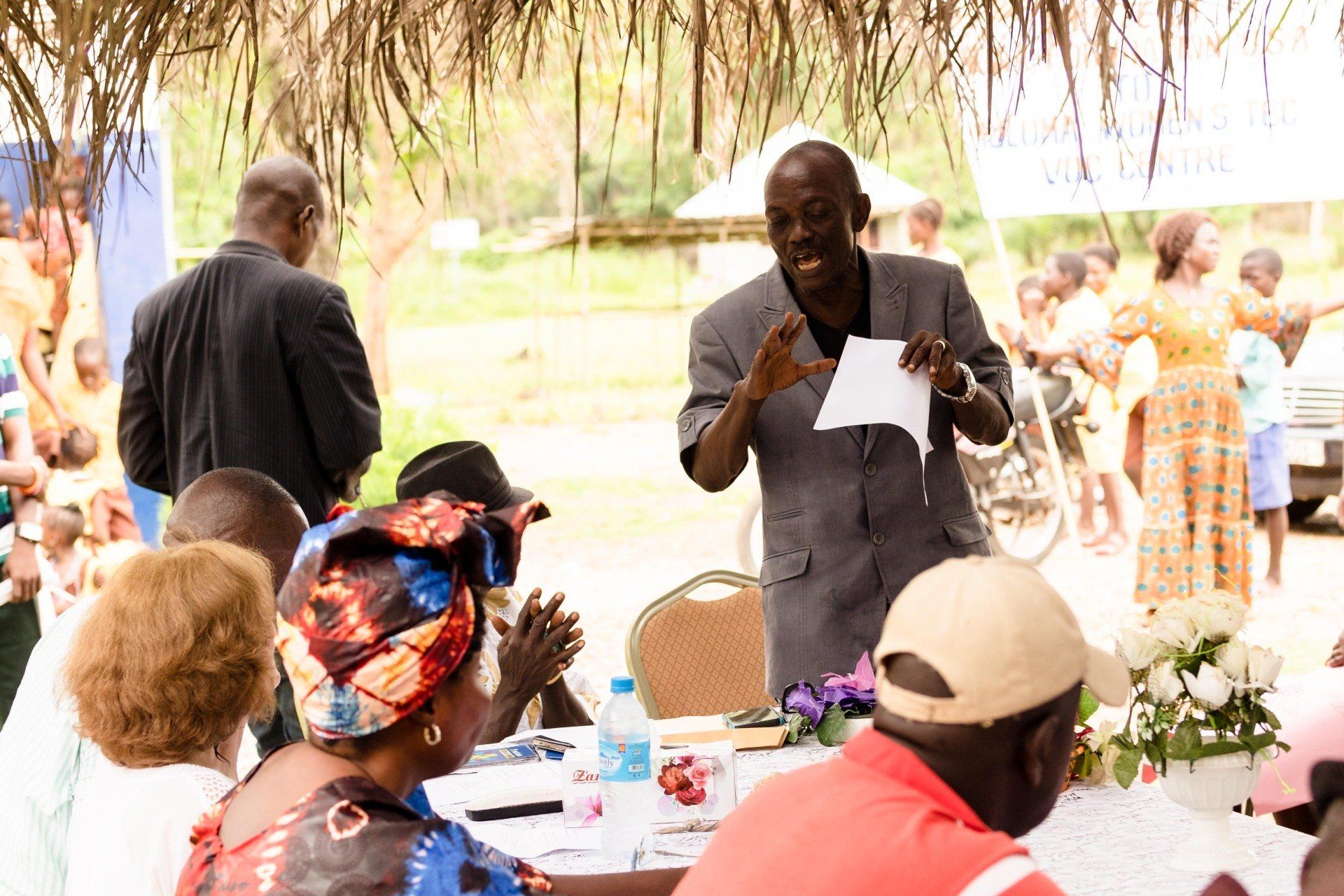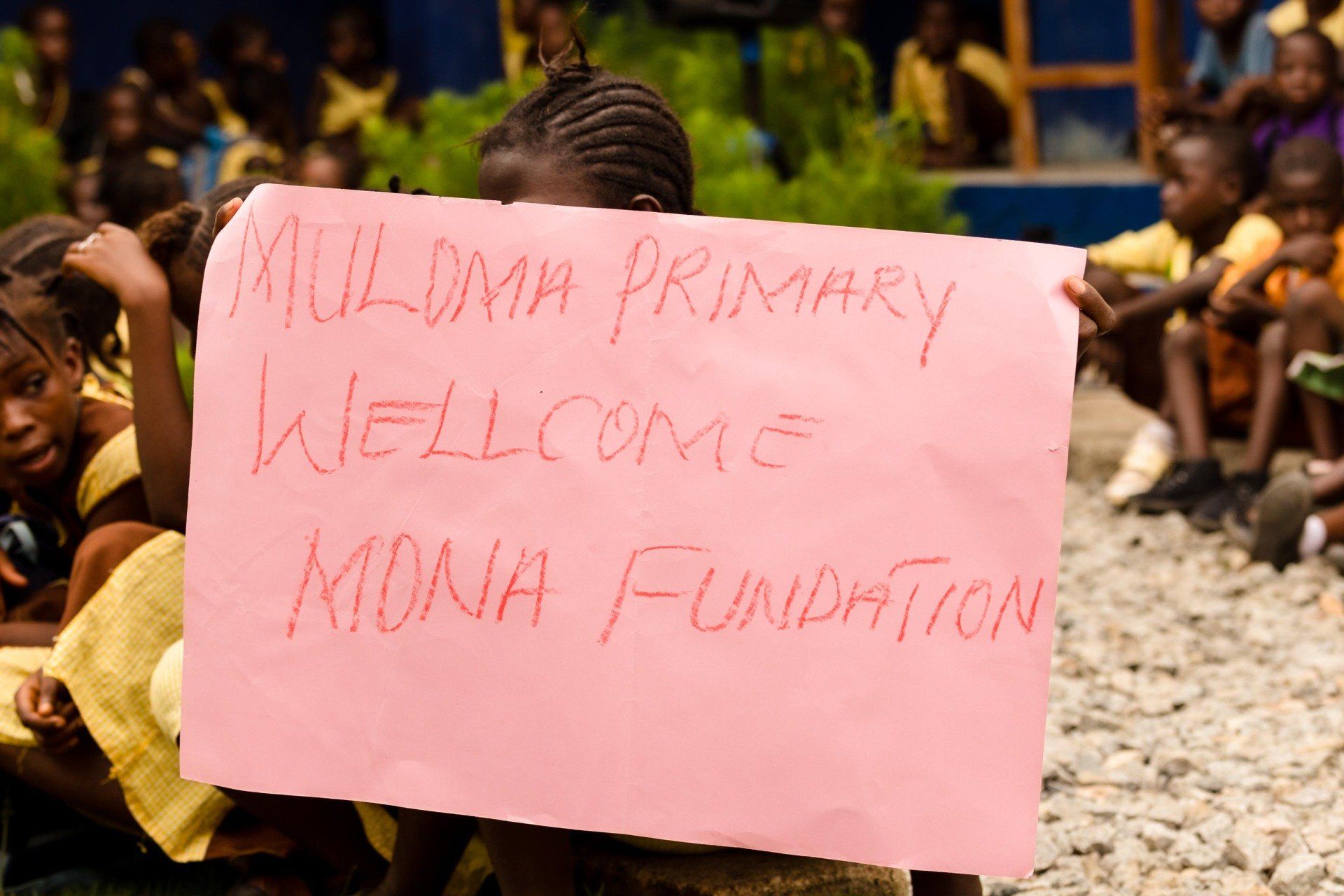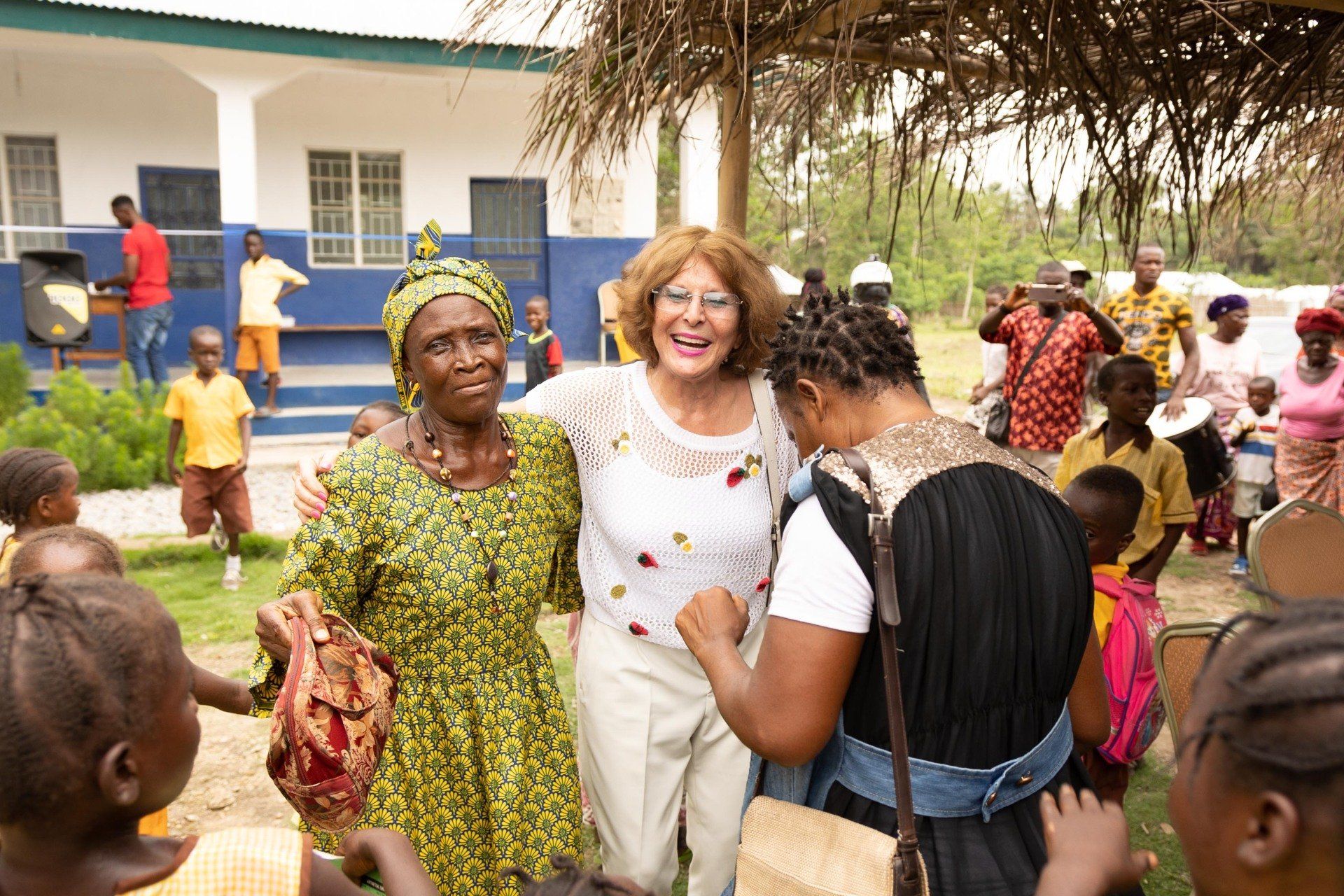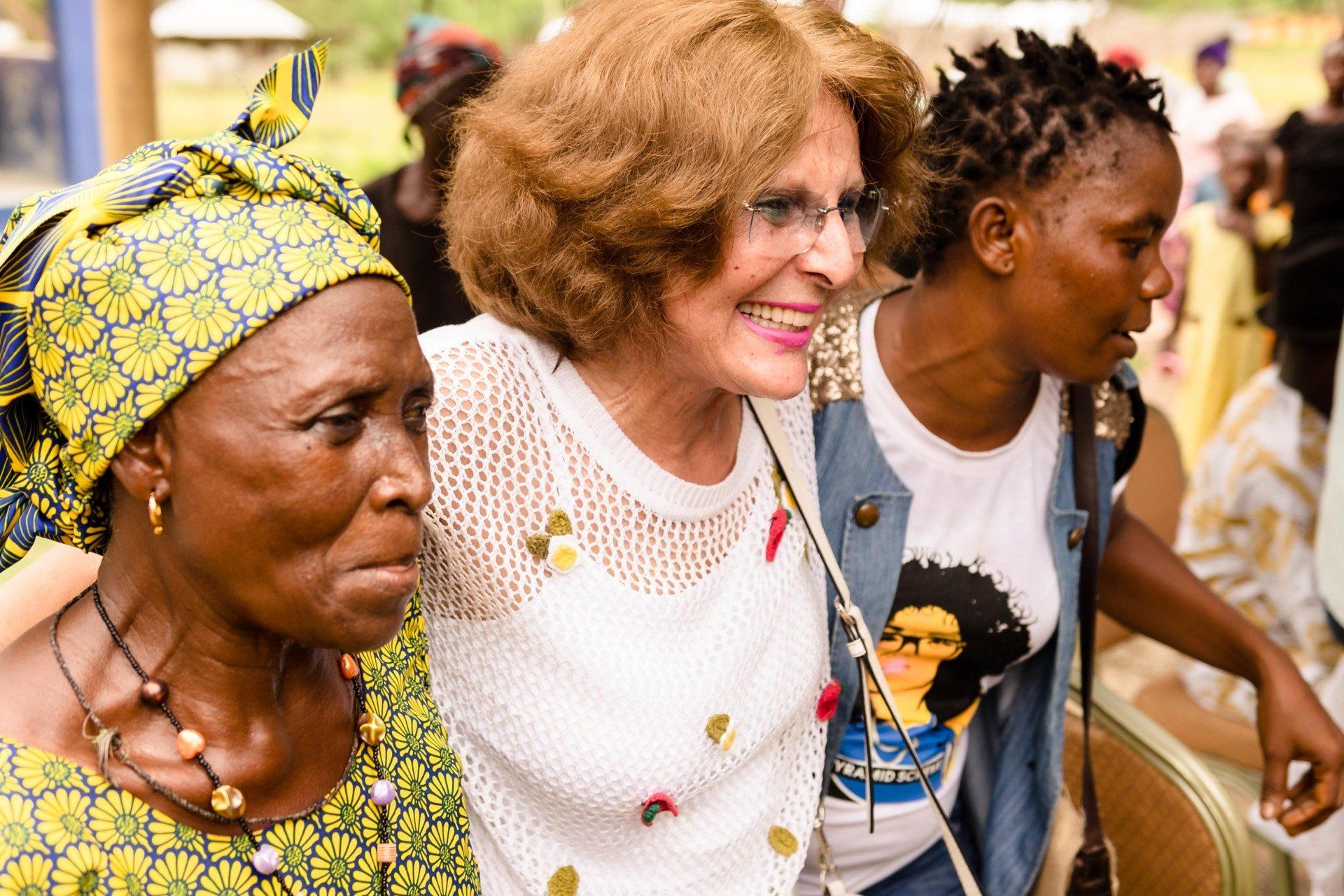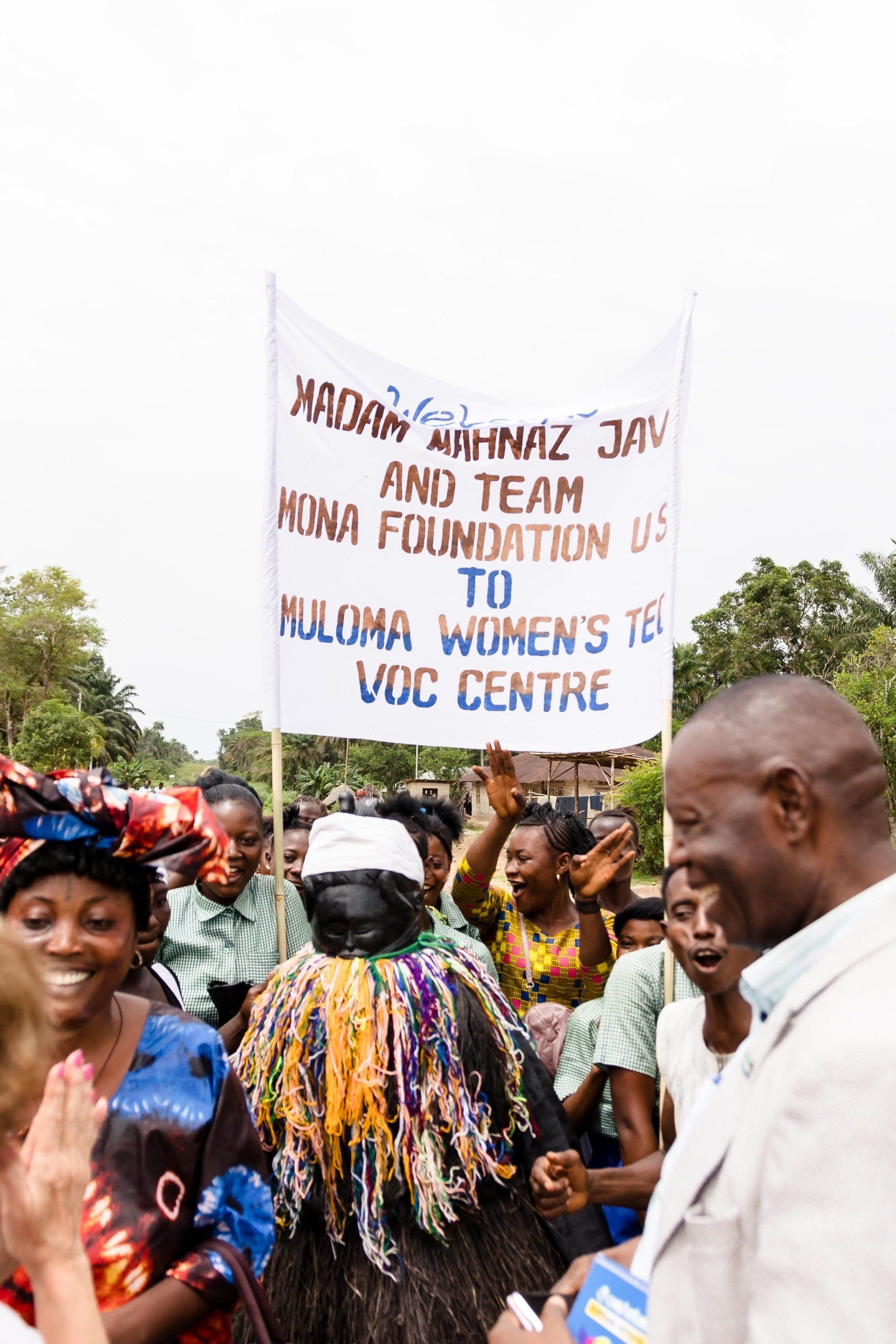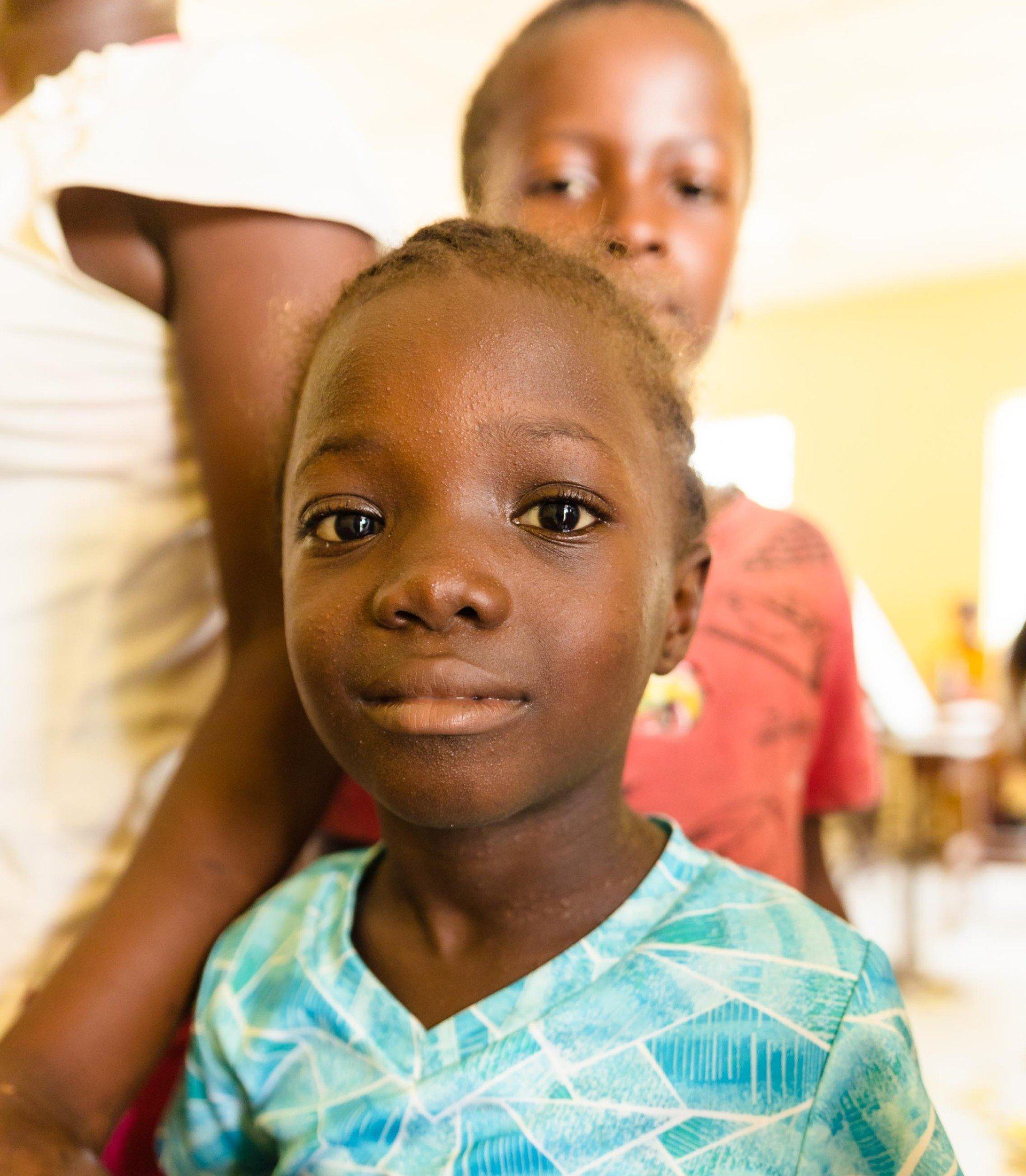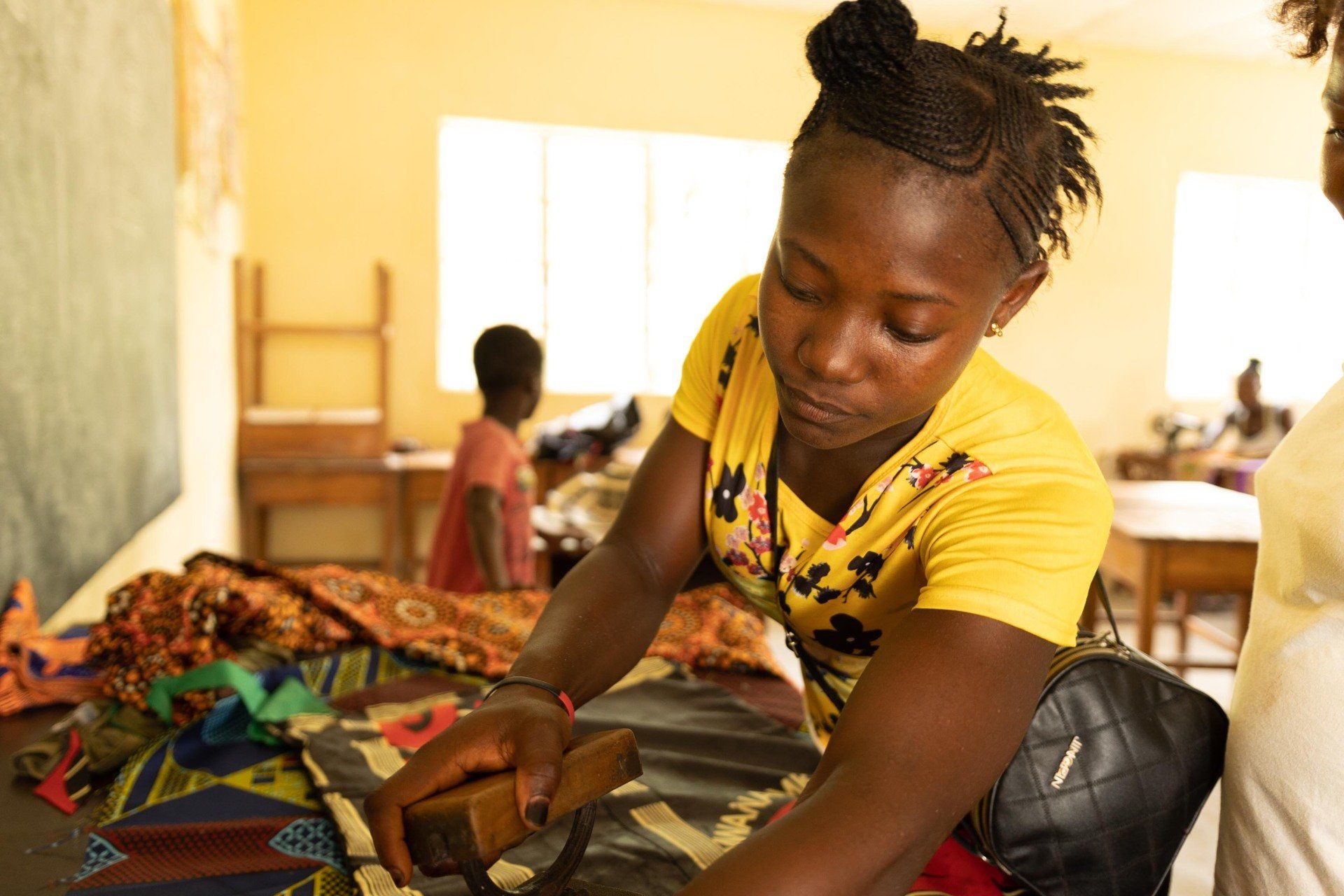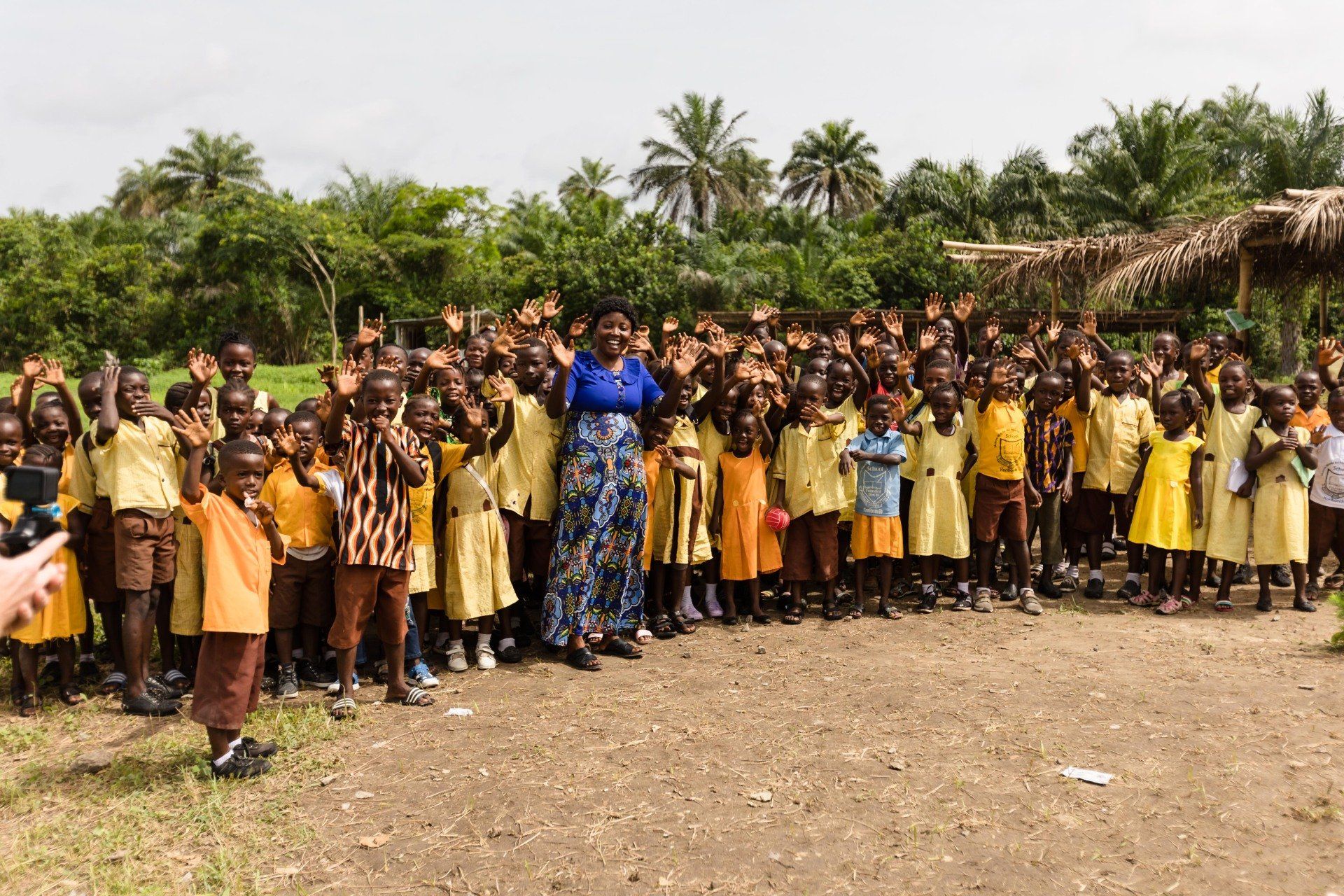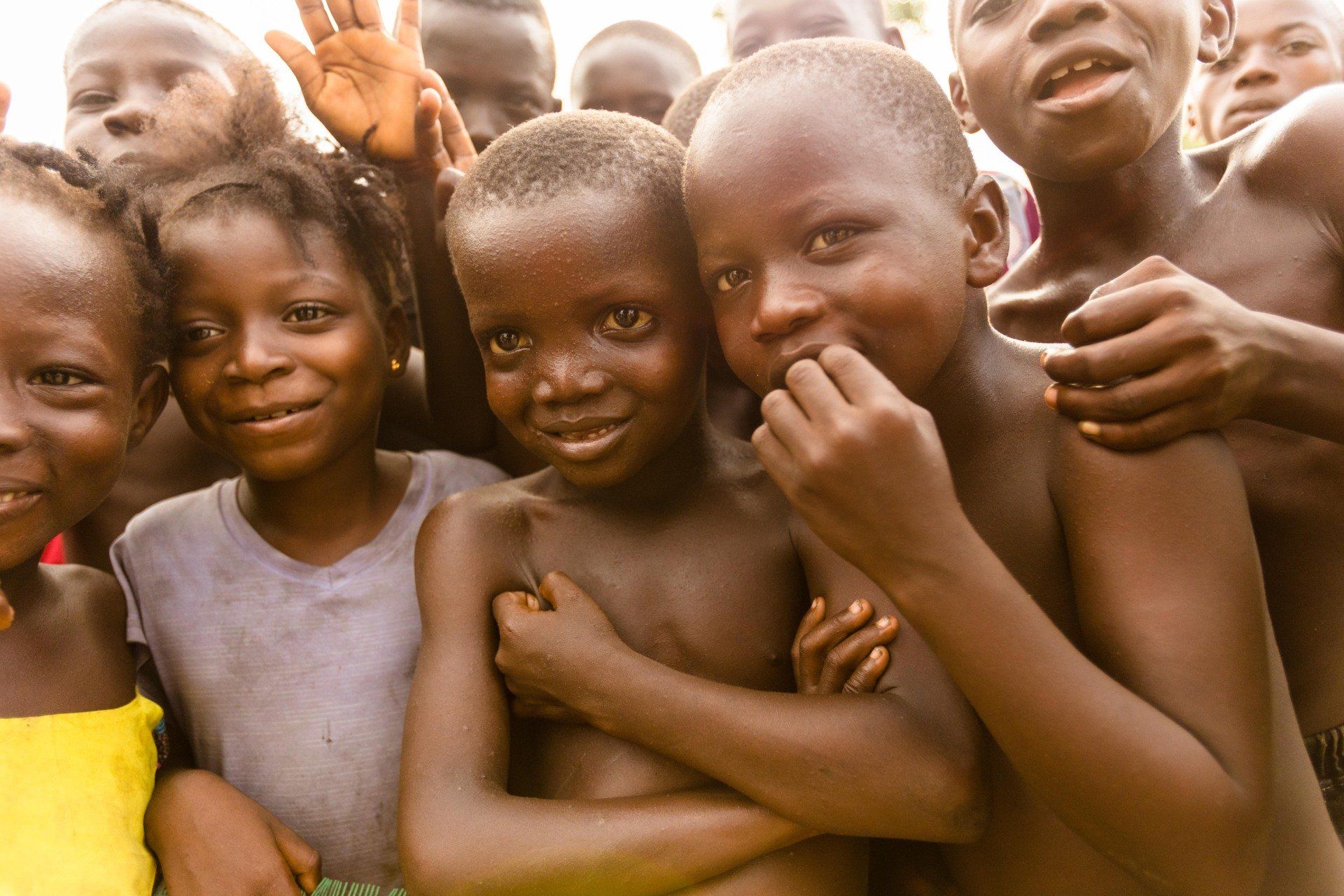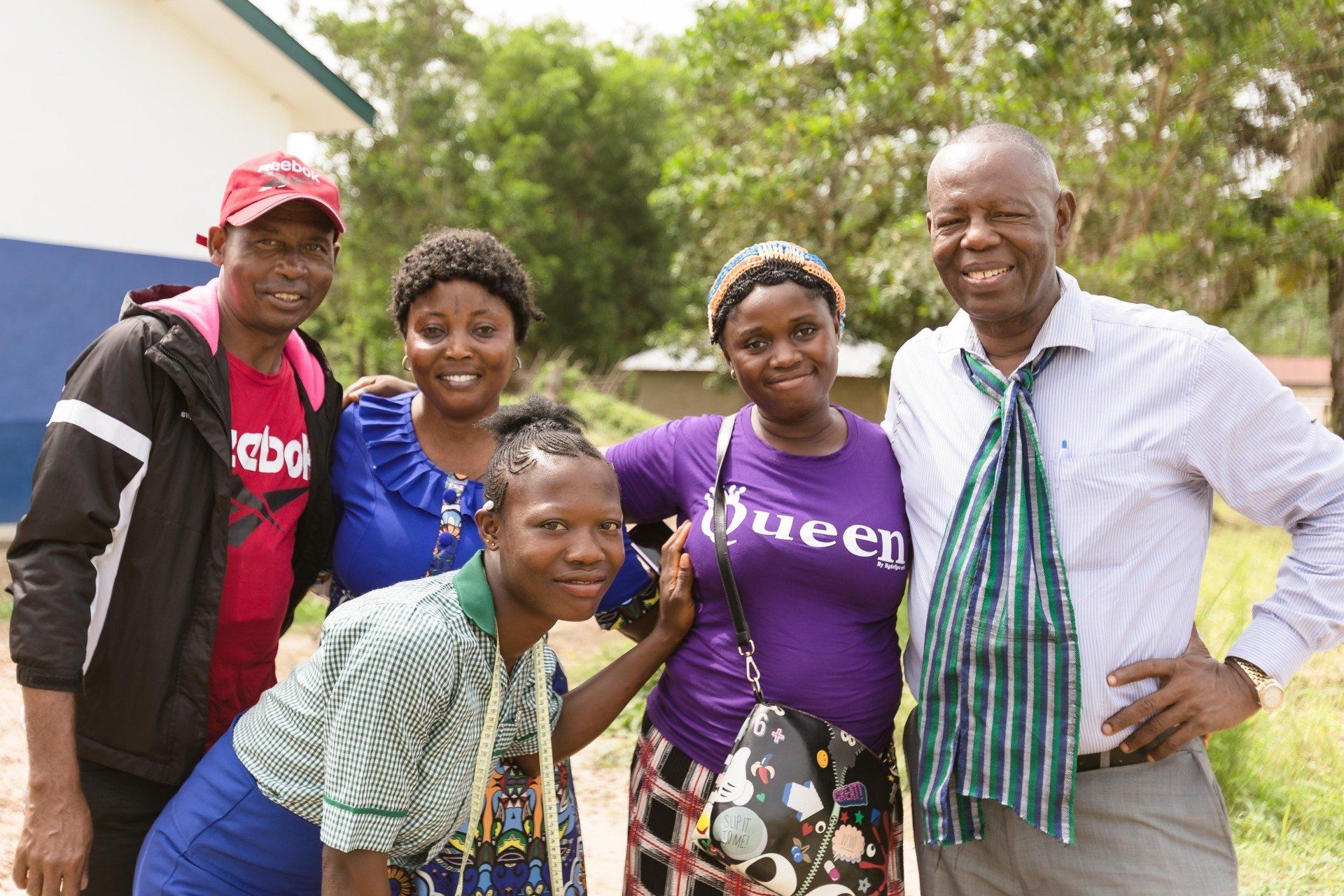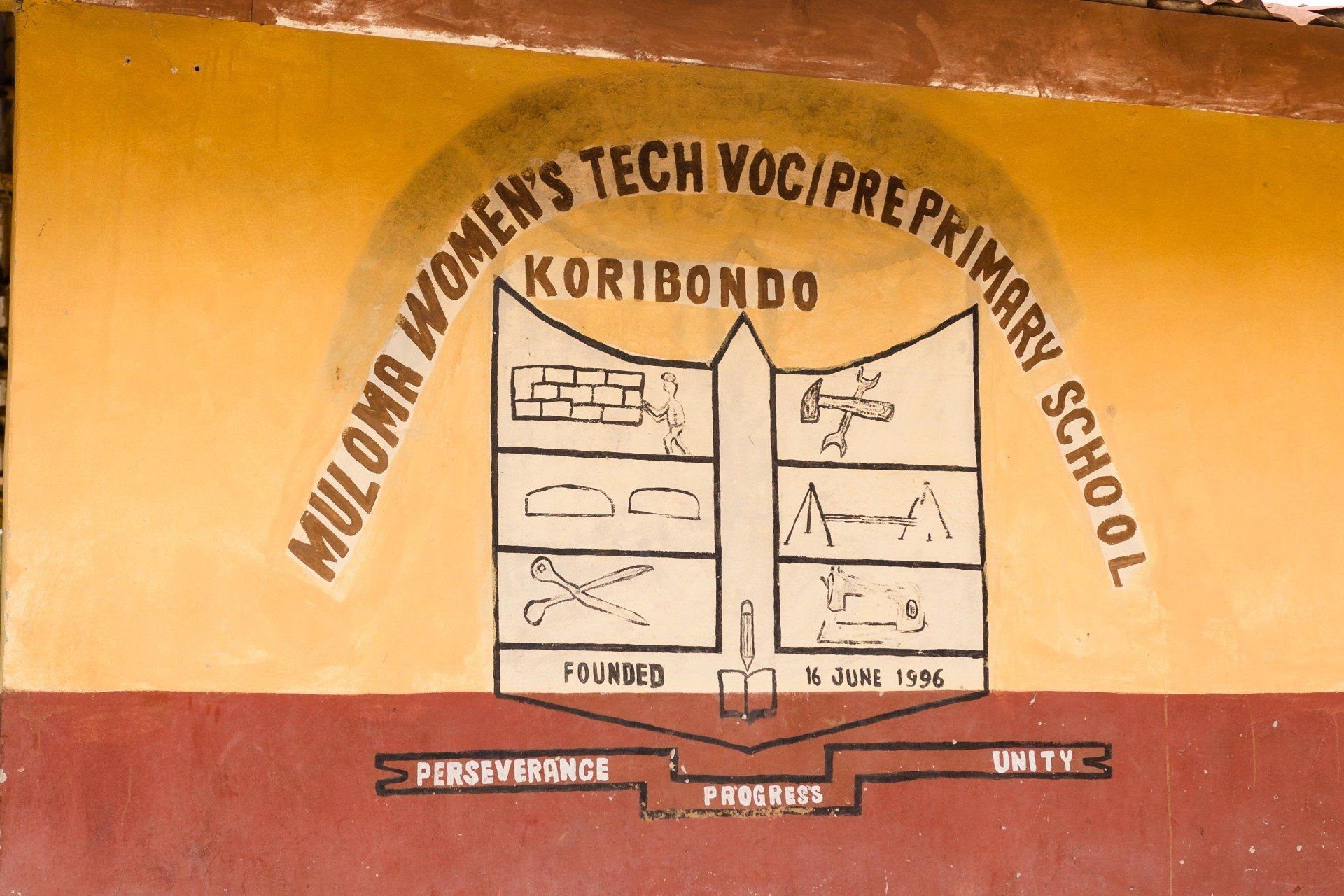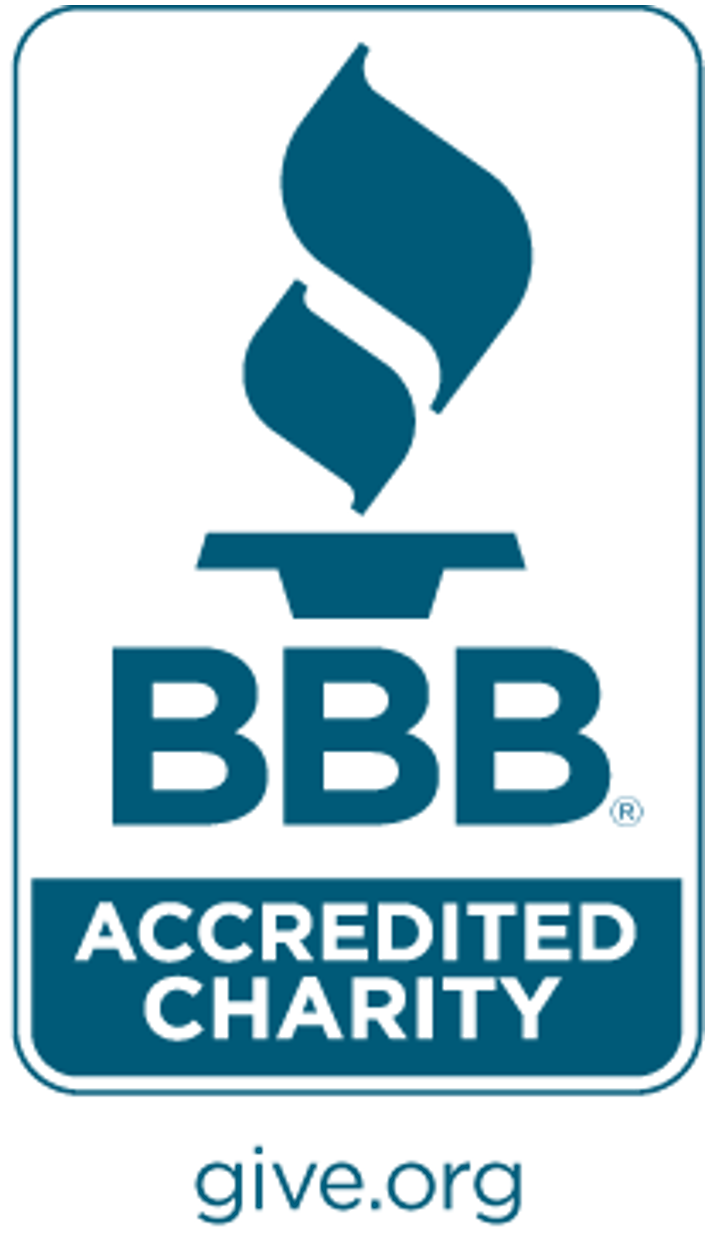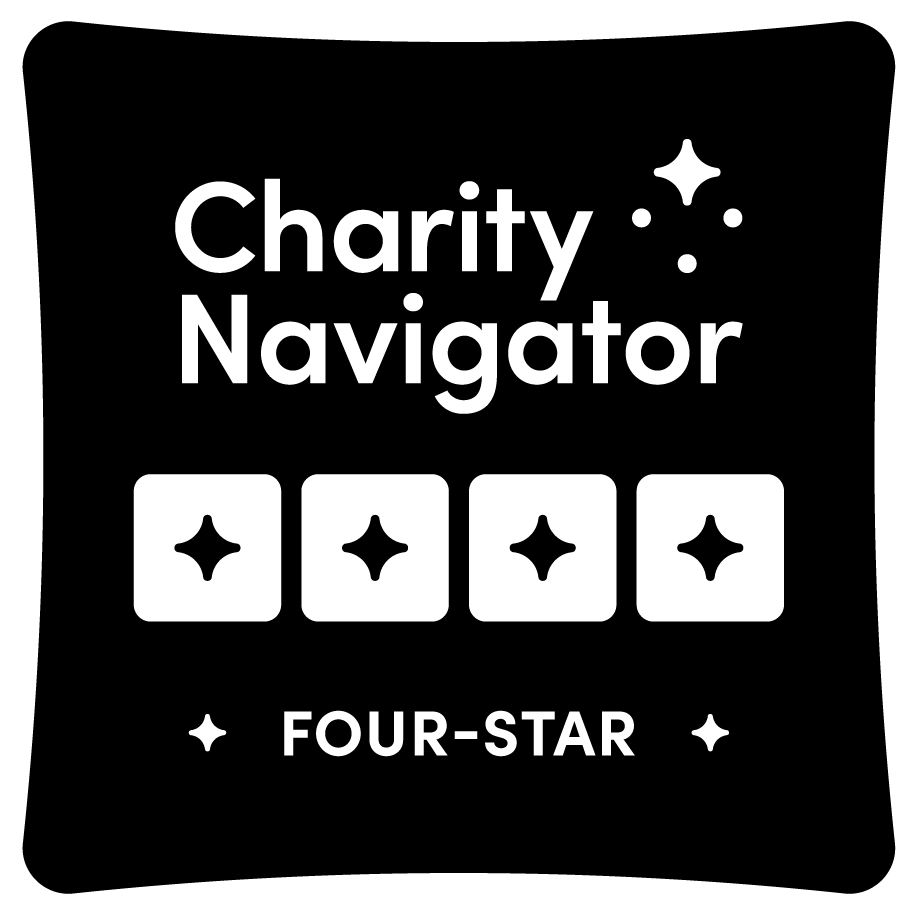A highly regarded non-governmental organization, Programme for Children (PFC) works to support community development and improve access to education in remote rural areas. Started in 1985 by Joseph Lamin and formally registered as a nonprofit in 2004, PFC -- with support from Danish Children's Fund and its US-based nonprofit Schools for Salone -- has so far built 87 schools in the country's rural villages and now educates thousands of children. Mr. Lamin himself grew up in one of the villages PFC now serves and was assisted by a missionary family. He later attended university in London with support from a Danish patron, graduating with a Master’s degree in Global Development. He immediately returned to Sierra Leone to commit himself to providing access to quality education for its children. A man of dignity and integrity, he was elected to the national parliament in recent years representing his hometown villages.
Programme for Children & the Power of Community-Led Development
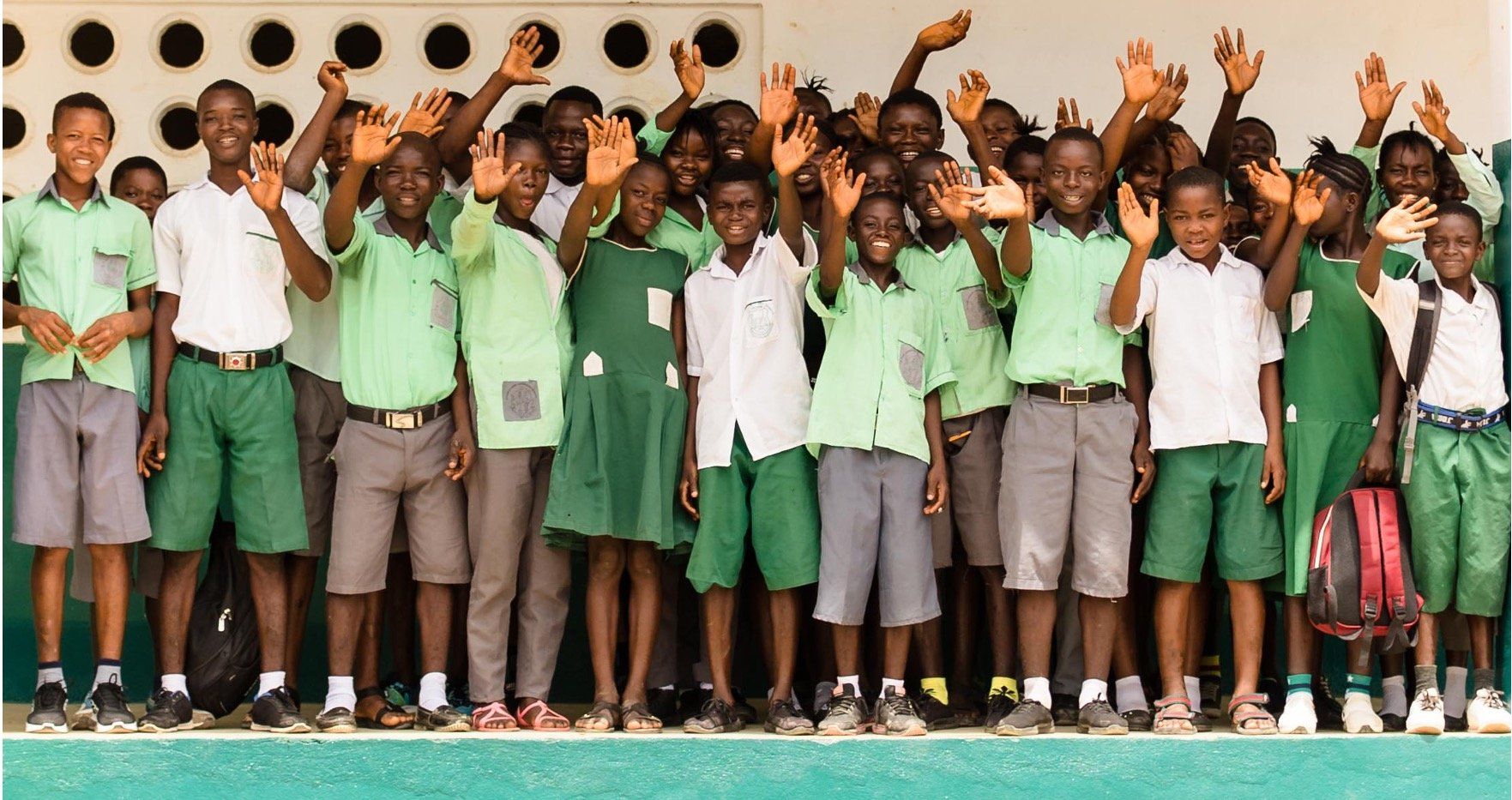
Mona Foundation has always recognized that development must be community-led to effectively reduce poverty and sustain positive change. This approach flows from our belief that all people are created equal and that each person, regardless of economic status, has the right, the capacity, and the responsibility to be the protagonists of their own development. Far from being helpless victims or passive recipients of aid, local people are in the best position to identify, analyze, and address the needs of their communities. With this understanding, Mona strives to tap into the vast capabilities of local people and organizations and, in partnership, to support them in building capacity to pursue their own development. Our partnership with Progamme for Children in Sierra Leona is an example of what is possible.
Mona Foundation has partnered with Programme for Children since 2019. To date, we have funded the building of four-classroom schools in the villages of Njomborhun and Masosingbi, a four classroom addition to the Muloma Vocational Technical Training Complex, and a new three-room library (under construction) that will serve over a dozen schools and colleges. Mona also provides for furnishings, books, materials, and supplies, and supports teacher training and certification.
A small team from Mona visited Programme for Children in May 2022. The power of community-led development was readily apparent in every place we visited. To appreciate the great strides that PFC has made, it is essential to know something of the country's history.
Today, Sierra Leone is a secular nation with a constitution providing for the separation of religion and state and freedom of conscience. As one of the few countries where diverse religious communities worship together, the country is becoming a beacon of hope in West Africa and a testimony to the power of the human spirit. The population is about three-quarters Muslim with an influential Christian minority. It is one of the only countries in Africa where religious tolerance is a part of their cultural norms and identity. Without exception, every meeting we attended in any village or place during our visit was proceeded by a prayer offered by a sheik, followed by the Lord’s prayer by a minister, followed by their village chief honoring their ancestors.
Community-Led Development at its best
Programme For Children is an outstanding example of community development at its best. Before any school is built, or any initiative is undertaken, the villages hold several town meetings with Joseph.
Usually held in open spaces, town meetings involve everyone: the women, the men, the village chief, the sheik, the government councilmen, the representative of the Ministry of Education, and anyone else who has a stake.
Everyone is asked for input, everyone talks and gives his or her opinion, and then the people collectively decide on what they need. Each one makes their commitments of support.
Villagers usually donate the land and offer their labor. The Ministry of Education promises teachers and books. The chief and the sheik promise to encourage parents to send their kids to school, and the community promises to maintain the facilities and feed and house the teachers.
Development unfolds in unexpected ways
The
Muloma Vocational Training Center in Koribondo was founded after the civil war by a woman from the village with the hope of providing the men and women a means of earning a meager living during the “hungry months” when the harvest is over. It is now run by her two daughters, Madam Lucia and Madam Hawa.
Mona funded an expansion project in 2020 to construct a new building with 5 classrooms and one staff room. Today the Center
trains
150 students in carpentry, tailoring, weaving, hair styling, catering, needle work, and textile printing. It also offers
certification training for teachers from surrounding villages so that they can receive their salary from the government.
Attached to the entry to the Center are two humble structures that serve as a preschool and primary school.
The most exciting and newest development is that the Center has begun offering distance education for college students from surrounding villages! Teachers from two universities, Njala University and Milton Margai College of Education and Technology, now teach at the Muloma Center campus so students can access university education without having to travel long distances. We were so excited to hear of this development and met with 10 students currently receiving university education. To the villages, this is a major development in support of the “quality of education.”
A New and Growing Library in Koribondo
For 2022, Mona funded the raising of a new library to serve the 13,000 people in the villages around Koribondo, including 6 primary schools, 5 secondary schools, and the vocational training center. Our $59K investment provided for construction, materials, furniture, books, and teacher training. When the Muloma Vocational Training Center began providing college-level distance learning, Joseph decided to add another room to the library using his own funds to provide library services for these students as well. The Koribondo Library is now being built with three very large rooms: one for college students studying at the Muloma Center, one for secondary school students, and one for primary school students. Land was donated by the Paramount Chief and hence is owned and cared for by the community. Construction should be completed by September 2022, just in time for the first day of school. The library will be operated and supervised by trained librarians.
Visit to the Jaiama Junior Secondary School in Njomborhun
Mona Foundation funded and built Jaiama school in Njomborhun in 2019. It currently serves
150 students
although there were fewer students present when we visited due to timing. During our visit, Joseph delivered supplies to the school and we met with all the teachers and visited the classrooms.
A huge success for this school is that
100% of their students passed the national exam! This is a source of pride for the school as at the beginning the community was skeptical about the quality of education they received.
In talking with the school's Vice Principal, it became clear that
teacher housing is a huge need. Teachers cannot receive a government salary until they complete their certification, which takes about 3 years, and so must initially teach without pay. For this reason, many cannot afford the cost of transportation back and forth to school for their certification training. Providing basic housing for teachers would assure their ongoing presence in the classroom and serve as an incentive to attract and maintain good teachers to the school. The villages will consider including this in PFC's 3-year development plan following their next full consultation on community priorities.
We departed from Sierra Leone feeling honored to be in partnership with Programme for Children, and tremendously inspired and hopeful by the high spirits, unwaivering commitment, and unified action of the country's people, communities, and institutions. Their exciting, unfolding story offers clear proof of the effectiveness and sustainability of community-led development. Mona Foundation has gained experience with this approach over two decades of collaboration with 51 local partner organizations across 23 countries. What we have witnessed time and again is this: Supporting communities in their own self-advocacy promotes empowerment rather than dependency, and enables them to build capacity to effectively address local needs and scale their proven programs.
